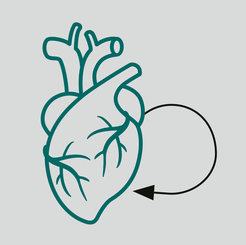Do Organ Donations Increase After the Switch to an Opt-out Default?
Center for Adaptive Rationality & Center for Lifespan Psychology
To address the shortage of organ donors, many countries have changed, or are debating changing, the organ donation default from opt-in to opt-out. A longitudinal study by the Center for Adaptive Rationality and the Center for Lifespan Psychology suggests this change in default may not be the effective solution health care systems have hoped for.
The global shortage of donated organs means that many people die waiting for a life-saving transplant. Proponents of the nudging approach to behavioral public policy have proposed what many—from researchers to policymakers to prominent politicians—hail as an effective and cost-efficient nudging intervention to increase rates of consent to posthumous organ donation: changing the legal default from an opt-in or explicit-consent system to an opt-out or presumed-consent system (see Box 1).


Box 1. Organ Donation Defaults
Most public policy choices have a no-action default, that is, a condition that is imposed when an individual fails to make a decision. In the case of organ donation, countries typically have one of two default policies:
Opt-in or presumed consent
Nobody is considered an organ donor without actively registering to be one. The aim of such a default is to prioritize individual agency and autonomy. Countries such as Canada, Ireland, and Denmark have an opt-in system.
Opt-out or presumed consent
All adult citizens are automatically considered organ donors unless they explicitly register otherwise. Such a default aims to increase sign-up rates while preserving the choice of individuals to withdraw their consent. For example, France, Italy, and Finland have an opt-out system.
The evidence for this intervention originally came from a groundbreaking study published in the journal Science 20 years ago. The researchers compared effective consent rates across 11 European countries. This rate is the number of people who opted in (in explicit-consent countries) or the number who did not opt out (in presumed-consent countries). The researchers found an enormous disparity between the two policies: In seven opt-out countries, the effective consent rate was on average 90%, whereas in four opt-in countries the consent rate was only about 10%. This gap in consent rates has often been attributed to inertia; in this interpretation, most people stick with the default status in their country because doing so requires no effort.
As good as the opt-out policy is at increasing effective consent rates, it is crucial to investigate whether it reaches its ultimate goal of increasing posthumous organ donation rates. An increase in consent rates does not necessarily result in increased rates of donation owing to the many reasons preventing registered potential donors from actually donating. These include dying outside of the hospital (organs need a supply of oxygen-rich blood to remain suitable for transplantation), families objecting to the consent of the deceased, doctors’ hesitancy in using a default option, a mismatch with potential recipients, and the absence of a transplant coordination network or trained medical staff, not to mention religious issues.

Box 2. What are Nudges?
Nudges are nonregulatory and nonmonetary interventions that steer people in a particular direction while preserving their freedom of choice. Examples include automatic (presumed) consent in organ-donation schemes and pension plans unless individuals specifically choose to opt out (rather than having to actively opt in if they want to enroll), the redesign of cafeterias such that healthier food is displayed at eye level, and the use of social norms to increase tax compliance. The nudge approach has also prompted critical debates about its underlying political philosophy of libertarian paternalism, the ethics of nudging, the empirical success of nudging interventions, as well as the approach’s starting proposition that deficits in human decision-making competence are pervasive and difficult to alter.
Twenty years after the initial default policy analysis, reliable data on default policies and organ donation rates have become more readily available. Overall, cross-sectional studies comparing donation rates across countries have found no robust evidence that an opt-out default has a considerable impact on donation rates. A systematic review published in the British Medical Journal in 2009 reported effects ranging from no significant effect to a mere six more organ donors per million population.
One limitation of cross-sectional comparisons such as these is that countries vary substantially on a range of factors that are likely to affect donation rates, such as culture, religiosity, and health infrastructure. Even though most studies controlled for some of these factors, statistical control is limited by the knowledge of measurable factors; therefore, a risk of residual confounding will remain.
To tackle these issues, Mattea Dallacker and Ralph Hertwig, behavioral scientists from the Center for Adaptive Rationality, and Andreas M. Brandmaier, an expert in longitudinal data analysis from the Center for Lifespan Psychology, analyzed within-country organ donation rates over time. The collaboration across Centers enabled the researchers to apply longitudinal methods from lifespan psychology to measure the change in organ donation rates within countries over time. The researchers used data from five countries that switched from an opt-in to an opt-out default policy: Argentina, Chile, Uruguay, Sweden, and Wales. The data were analyzed with a Bayesian regression model, which estimated the odds of organ donation relative to nondonation within each population across time, as well as the effect of the policy switch.
The model fit the data well. It predicted an average annual increase in the odds of organ donation relative to nondonation, and it did so independent of the change in default policy. That is, the change in default did not lead to a credible effect. Furthermore, the COVID-19 pandemic was associated with a drastic decrease of the odds of donation.
The authors also investigated if economic prosperity and death by transport accidents were associated with the number of donations using a model that also included gross domestic product (GDP) per capita and the number of deaths by transport accident as predictors. There was weak evidence for the inclusion of GDP and strong evidence in favor of the inclusion of accidents. In this model, there was still strong evidence against the inclusion of policy as a predictor.
These results suggest that a policy change from an explicit-consent (opt-in) to a presumed-consent (opt-out) default hardly increases effective donation rates. Although these findings do not dispute previously observed effects of defaults on effective consent rates, they show that a change in default alone is not the game changer it has often been thought to be.
According to the authors, there is an alternative to opt-in and opt-out defaults: mandated choice. In New Zealand, for instance, individuals are required to choose between being a donor or a nondonor when they register for a driver’s license. This both circumvents the problem of inertia and avoids conveying an implicit recommendation as when setting a default. Additionally, experimental evidence suggests that, compared to an opt-out system, mandated choice makes it easier for next of kin to infer a family member’s preference.
IN A NUTSHELL
- European countries employing an opt-out system for posthumous organ donation have significantly higher sign-up rates compared to countries using an opt-in system.
- Yet cross-sectional studies have found that an opt-out default does not significantly increase actual organ donation rates.
- The latest longitudinal study addressed the limitations of previous cross-sectional analyses and found that changing the organ donation default to an opt-out system indeed does not lead to a substantial increase in organ donation rates.
- There was also strong evidence that the COVID-19 pandemic was linked to a decrease in the likelihood of organ donation.
Research Project in Brief
Topic: Do organ donations increase after the switch to an opt-out default?
Researchers: Lisann Appelius (Student Research Assistant, Center for Adaptive Rationality), Andreas M. Brandmaier (Senior Research Scientist, Center for Lifespan Psychology), Mattea Dallacker (Associate Research Scientist, Center for Adaptive Rationality), Ralph Hertwig (Director, Center for Adaptive Rationality)
Period: 2022–2023
Funding: Max Planck Society
Publication
Dallacker, M., Appelius, L., Brandmaier, A. M., & Hertwig, R. (2023). Opt-out defaults hardly increase organ donation.
Ms. submitted for publication.


